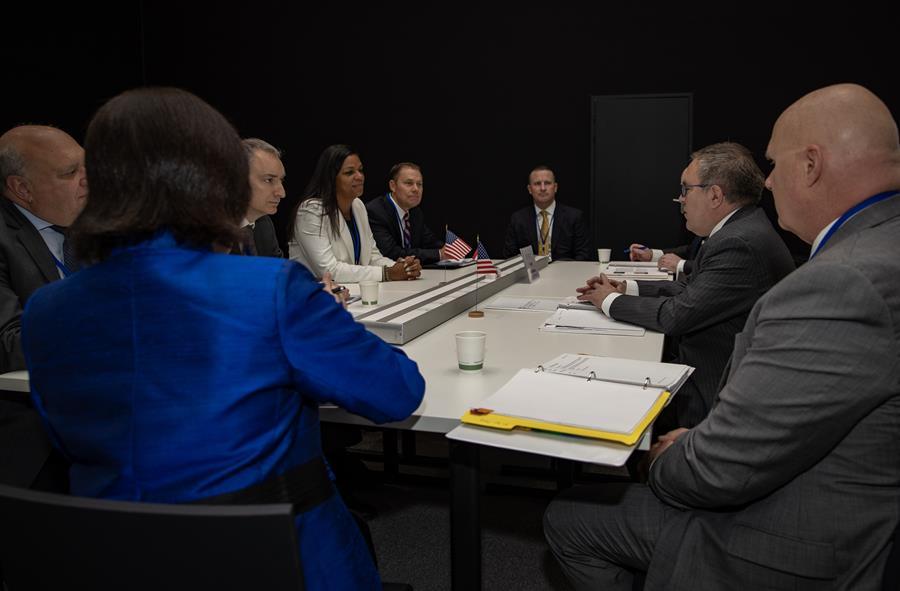EPA Administrator Discusses Marine Litter and Waste with U.S. Stakeholders at G7 Meeting
Metz, France - Today, U.S. Environmental Protection Agency (EPA) Administrator Andrew Wheeler hosted U.S. stakeholders at the G7 Environmental Ministers meeting in Metz, France to discuss ways the government, non-governmental organizations, and the private sector can work to curb marine litter and waste. He was joined by representatives from the Ocean Conservancy, LyondellBasell, and the American Chemistry Council. Each minister at the G7 was invited to host a private sector and non-governmental organization leader to address reducing waste.
Every year, an estimated 11 to 28 billion pounds of waste ends up in the ocean, harming marine life and coastal economies. Nearly 60 percent of that waste comes from six Asian nations. Approximately 80 percent of ocean trash comes from land based sources, including plastics.
“Governments, the private sector, and society all agree on the need to solve the ocean plastic crisis and to employ a full range of solutions. Solely banning plastics will not make a significant impact in cleaning up our oceans,” said Administrator Wheeler. “To be most effective, nations around the world must address the problem before it gets to our oceans, which means improving waste management and recycling. This past year, EPA held their first ever Recycling Summit, bringing together leaders from all levels of the recycling chain to discuss ways to strengthen the recycling industry and markets. It is our hope that we can build on recycling solutions that can be shared with our international partners.”
Administrator Wheeler will stress the issue of curbing marine litter and plastic with his G7 counterparts this week.
“Proper plastics disposals are a very complex challenge and finding an effective solution requires close cooperation and coordination between the private sector and governments,” said Jim Seward, LyondellBasell vice president of sustainability. “If we can recover plastics effectively and recognize they are a valuable resource and not simply trash, then they can be reused and recycled. As an industry we are taking action through a variety of new, innovative and pragmatic approaches including traditional and chemical recycling.”
During a session with G7 ministers on Innovative Solutions to Fight Plastic Waste, Administrator Wheeler highlighted the EPA's Trash Free Waters program where the Agency works directly with states, municipalities, and businesses to reduce litter, prevent trash from entering waterways, and capturing trash that has already entered waterways. Additionally, he discussed the pilot projects based off this program that the United States has launched in Jamaica, Peru, and Panama to combat marine litter.
U.S. stakeholders from Ocean Conservancy and LyondellBasell and representatives from other G7 members also presented on solutions the international community can look to in efforts to curb marine waste.
 U.S. EPA Administrator Andrew Wheeler meets with U.S. stakeholders from Ocean Conservancy and LyondellBasell.
U.S. EPA Administrator Andrew Wheeler meets with U.S. stakeholders from Ocean Conservancy and LyondellBasell.
